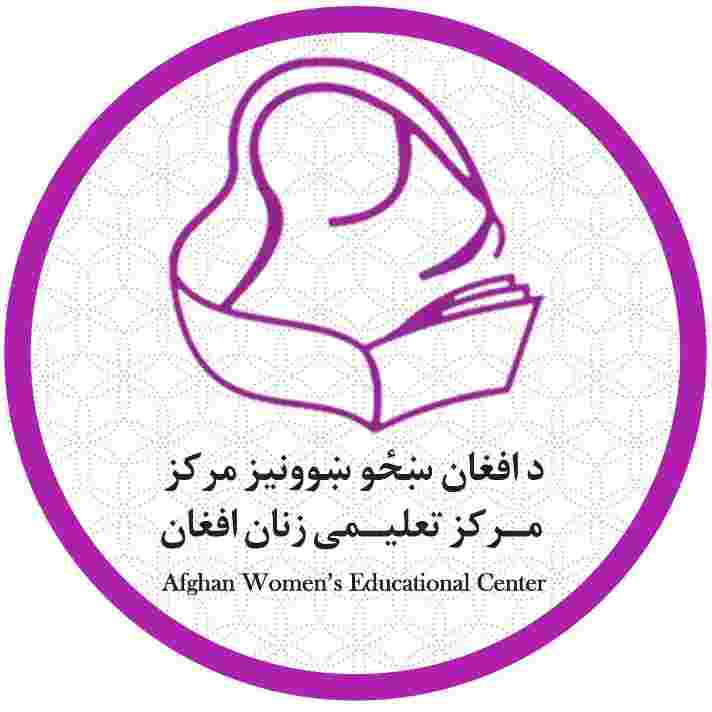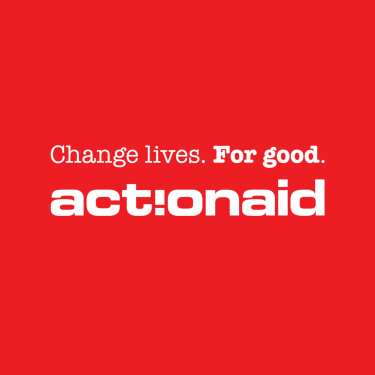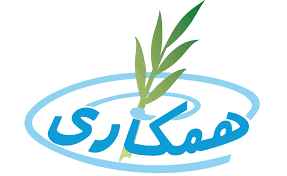Key Responsibilities:
1. Program Management:
· Lead the Design and Implementation: Oversee the comprehensive development and execution of Smallholder Agriculture Market Support (SAMS) and Small-Scale Value Chain (SSVC) programs. Conduct community needs assessments to identify specific agricultural challenges and opportunities. Collaborate with team members and local stakeholders to tailor activities that effectively address these needs, ensuring all initiatives are culturally appropriate and sustainable.
· Conduct Feasibility Studies and Assessments: Arrange, facilitate, and conduct feasibility studies, surveys, and needs assessments for ongoing programs. Actively participate as a key member of the assessment teams to gather relevant data and ensure comprehensive analysis.
· Curriculum Development: Prepare agricultural and livestock manuals and training materials that align with program objectives. Ensure that all materials are practical, relevant, and accessible to participants.
· Technical Inputs and Programmatic Activities: Lead, manage, and implement programmatic technical activities, providing essential technical inputs for baseline surveys, market surveys, and value chain studies. Ensure that program activities are aligned with community needs and project goals.
· Familiarity with Program Frameworks: Maintain a thorough understanding of program implementation approaches, project cycles, work plans, log frames, and key performance indicators, ensuring alignment with overall program objectives.
· Data Collection and Analysis: Conduct and collect necessary agricultural, meteorological, and environmental data to calculate crop water and irrigation requirements, informing project activities and decision-making.
· Water Management Practices: Identify and improve traditional water distribution and allocation systems, introducing best practices for water management to enhance irrigation efficiency.
· Capacity Building and Training Delivery: Develop capacity-building materials and deliver training courses on various irrigation and agricultural topics. Introduce best practices for wheat production, including land preparation, seed selection, pest management, and weed control.
· Harvesting Techniques Demonstration: Demonstrate effective harvesting techniques, including timing, threshing, cleaning, packing, storage, and transportation practices to ensure quality and reduce losses.
· Pest and Disease Management Training: Train farmers in pest and disease management strategies and methods to minimize post-harvest losses, enhancing overall productivity and sustainabil
· Field StaffCapacity Building: Enhance the capacity of field staff in administrative management, new technologies, and marketing information, fostering a knowledgeable and efficient team.
· Collaboration with Farmers: Work closely with farmers to minimize or avoid post-harvest losses, creating a strong support system within the community.
· Coordination and Communication: Ensure effective communication and coordination with project staff and stakeholders throughout all phases of the program, promoting collaboration and shared goals.
· Innovation and Efficiency: Generate new ideas to enhance project efficiency, seeking innovative solutions to existing challenges and adapting strategies as needed.
· Training Plans and Modules: Identify training needs, prepare training plans, and develop relevant training modules tailored to participants' requirements, ensuring effective knowledge transfer.
· Program Support: Liaise with and support key program staff to ensure that the program effectively utilizes resources and meets its objectives.
· Reporting Requirements: Provide inputs for project reports on a weekly, monthly, quarterly, and annual basis, ensuring accurate and timely documentation of progress and outcomes.
· Translation and Documentation: Provide written and oral translation and report writing support for program staff as necessary, ensuring clear communication of program activities.
· Additional Duties: Undertake other duties as assigned by the Program Manager, contributing to the overall success of the program and the empowerment of target communities.
2. Staff Supervision:
· Manage and Mentor Trainers: Supervise and provide mentorship to agriculture and livestock trainers, as well as the Social Behavior Change Communication (SBCC) Community Mobilizer and support staff. This includes setting clear performance expectations, providing constructive feedback, and conducting regular performance evaluations to support professional growth.
· Conduct Training Sessions: Organize and facilitate regular training sessions and capacity-building workshops tailored to the specific needs of the team. These sessions should focus on enhancing technical skills, improving instructional methods, and updating staff on best practices in agriculture, livestock management, and community engagement.
· Foster a Collaborative Environment: Create a collaborative and inclusive team atmosphere that encourages open communication and teamwork. Promote an environment where team members feel valued and empowered to share ideas, ask questions, and contribute to program improvements. Encourage cross-training among staff to strengthen team cohesion and adaptability.
· Support Professional Development: Identify individual training and development needs for each team member, facilitating access to relevant resources and opportunities for growth. Encourage participation in external training programs, conferences, and workshops to further enhance their skills and knowledge.
· Implement Team-Building Activities: Organize team-building activities that strengthen relationships among team members, foster trust and collaboration. These activities can include group discussions, problem-solving exercises, and informal gatherings to build camaraderie.
· Monitor Team Dynamics: Regularly assess team dynamics and address any conflicts or challenges that arise. Facilitate discussions to resolve issues and ensure a positive working environment where all team members can thrive.
· Recognize Achievements: Acknowledge and celebrate individual and team achievements to boost morale and motivation. Implement a recognition program to highlight outstanding contributions and successes within the team.
3. Stakeholder Engagement:
· Collaborate with Local Authorities and Organizations: Engage with local authorities, line departments, community organizations, and businesses to enhance the visibility and support of agricultural programs. Build strong relationships that facilitate effective implementation and resource sharing.
· Organize Community Awareness Sessions: Organize community awareness sessions focused on promoting agricultural initiatives and training opportunities. Raise awareness about the benefits of sustainable agricultural practices, market engagement, and the resources available through the program.
· Involve Farmers and Community Leaders: Actively involve farmers and community leaders in program planning and implementation. Seek their input and feedback to ensure that activities are relevant and beneficial to the community's agricultural needs.
· Promote Networking Opportunities: Create networking events that connect farmers, trainers, and local businesses, fostering collaboration and knowledge exchange. Encourage the sharing of best practices and experiences within the agricultural community.
4. Administration and Reporting:
· Maintain Accurate Records: Ensure the meticulous documentation of all training activities, including participant attendance, training materials used, and feedback received. Organize records in a systematic manner to facilitate easy retrieval and analysis. This includes tracking participant progress and outcomes to assess the effectiveness of training programs.
· Prepare Regular Progress Reports: Compile and submit comprehensive weekly and monthly progress reports to management and donors. These reports should highlight key achievements, challenges faced, participant feedback, and recommendations for improvement. Use data and qualitative insights to provide a clear picture of program impact and effectiveness.
· Cash-Food Requests Management: Prepare and submit regular cash-food requests based on participant attendance records. Monitor and follow up on the distribution of cash-food to ensure timely and accurate delivery to participants. Maintain records of distributions to ensure accountability and transparency in the program.
· Ensure Compliance: Verify that all program activities adhere to organizational policies and donor requirements. Regularly review guidelines and reporting formats to ensure that all documentation meets the necessary standards. Conduct internal audits of records and processes to identify areas for improvement and ensure compliance.
· Coordinate with Finance and Administration: Work closely with the finance and administration teams to ensure that budgetary allocations for training activities and cash-food distributions are properly managed. Collaborate to resolve any discrepancies or issues that arise in financial reporting.
· Feedback and Improvement: Utilize participant feedback and data collected to inform administrative processes and reporting. Identify trends and areas for enhancement, using insights gained to improve future training sessions and overall program administration.
· Training on Reporting Procedures: Provide training and support to team members on proper documentation and reporting procedures. Ensure that all staff understand the importance of accurate record-keeping and reporting in maintaining program integrity and donor relations.
5. Financial and Logistics Management:
· Budget Utilization: Ensure effective and efficient use of project budgets by monitoring expenditures and ensuring alignment with project goals. This includes regularly reviewing budget reports, identifying any discrepancies, and making necessary adjustments to maintain financial integrity.
· Financial Reporting: Prepare and present financial reports to stakeholders, detailing budget utilization, expenditure patterns, and any financial challenges encountered. This transparency helps in maintaining accountability and securing ongoing support for the project.
· Logistics Coordination: Oversee logistics and transportation needs for project staff and activities, ensuring timely and cost-effective arrangements. This involves collaborating closely with the logistics team to plan transport schedules, manage vehicle usage, and coordinate the movement of materials and personnel.
· Collaboration with Finance and Logistics Teams: Work collaboratively with finance and logistics teams to streamline processes, enhance communication, and ensure that all logistical arrangements align with budgetary constraints. This partnership is essential for effective project implementation and resource allocation.
· Inventory Management: Monitor and manage inventory levels of supplies and equipment required for training activities. Ensure that all necessary materials are available and in good condition, implement procurement processes as needed to replenish stock.
· Compliance and Risk Management: Ensure all financial and logistical operations comply with organizational policies and donor requirements. Identify potential risks related to budget management and logistics, implementing mitigation strategies to address these challenges proactively.
· Training and Capacity Building:
Provide training to project staff on financial management and logistics best practices, enhancing their capacity to manage resources effectively and efficiently.
6. Data Management:
-
Organize and maintain project documentation in both hard and soft formats.
-
Document lessons learned and case studies, sharing insights with project staff and stakeholders.
-
Ensure timely reporting to line managers on project implementation.




